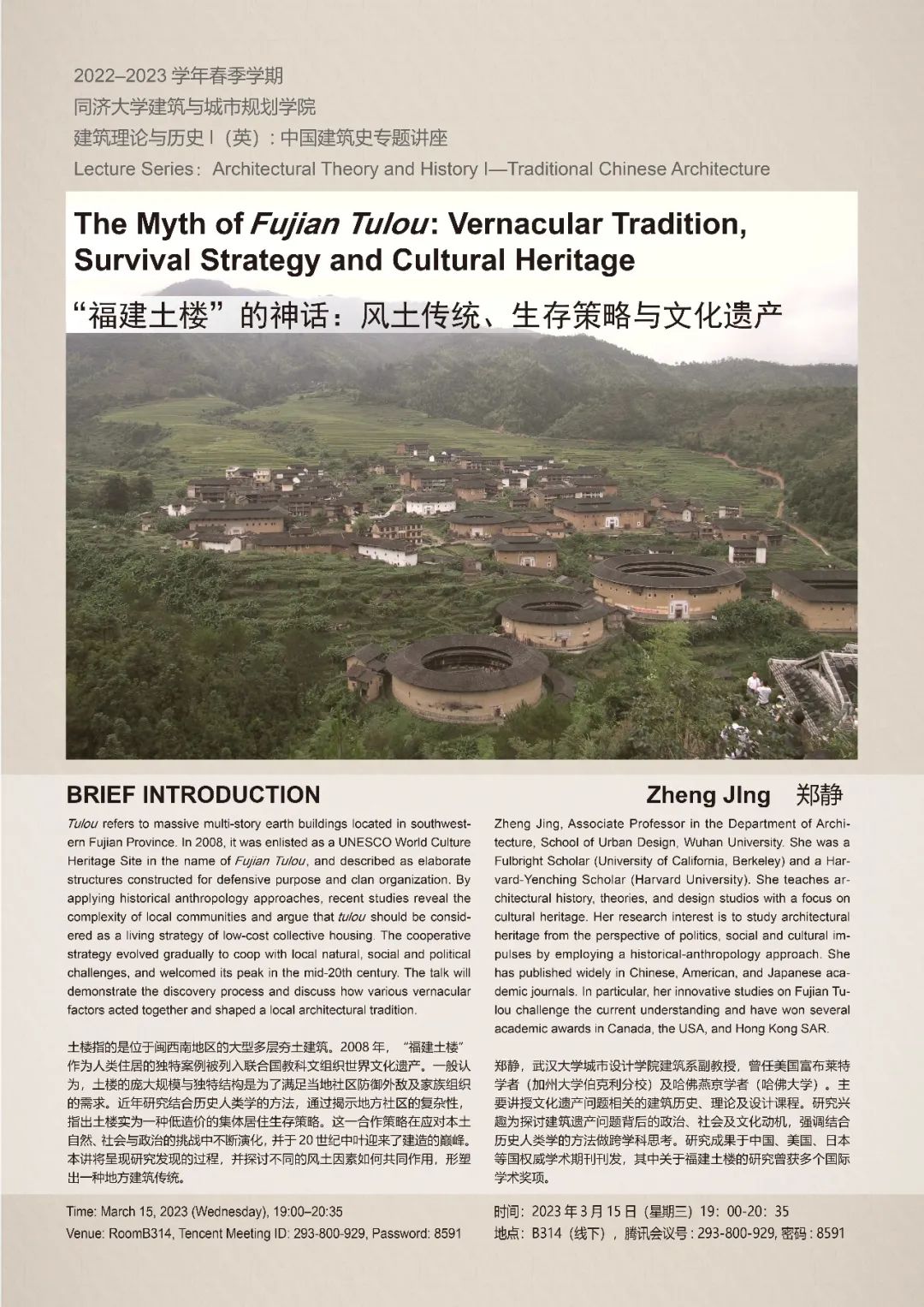
Architectural Theory and History I:
Traditional Chinese Architecture
The Myth of Fujian Tulou:
Vernacular Tradition, Survival Strategy
and Cultural Heritage

Zheng Jing
Zheng Jing, Associate Professor in the Department of Architecture, School of Urban Design, Wuhan University. She was a Fulbright Scholar (University of California, Berkeley) and a Harvard-Yenching Scholar (Harvard University). She teaches architectural history, theories, and design studios with a focus on cultural heritage. Her research interest is to study architectural heritage from the perspective of politics, social and cultural impulses by employing a historical-anthropology approach. She has published widely in Chinese, American, and Japanese academic journals. In particular, her innovative studies on Fujian Tulou challenge the current understanding and have won several academic awards in Canada, the USA, and Hong Kong SAR.
Tulou refers to massive multi-story earth buildings located in southwestern Fujian Province. In 2008, it was enlisted as a UNESCO World Culture Heritage Site in the name of Fujian Tulou, and described as elaborate structures constructed for defensive purpose and clan organization. By applying historical anthropology approaches, recent studies reveal the complexity of local communities and argue that tulou should be considered as a living strategy of low-cost collective housing. The cooperative strategy evolved gradually to coop with local natural, social and political challenges, and welcomed its peak in the mid-20th century. The talk will demonstrate the discovery process and discuss how various vernacular factors acted together and shaped a local architectural tradition.
March 15, 2023 (Wednesday), 19:00–20:35
Room B314
Tencent Meeting ID: 293-800-929
Password: 8591
[2] Oliver, Paul. Built to Meet Needs: Cultural Issues in Vernacular Architecture. Elsevier Ltd. , 2006.
 ABOUT US
ABOUT US




